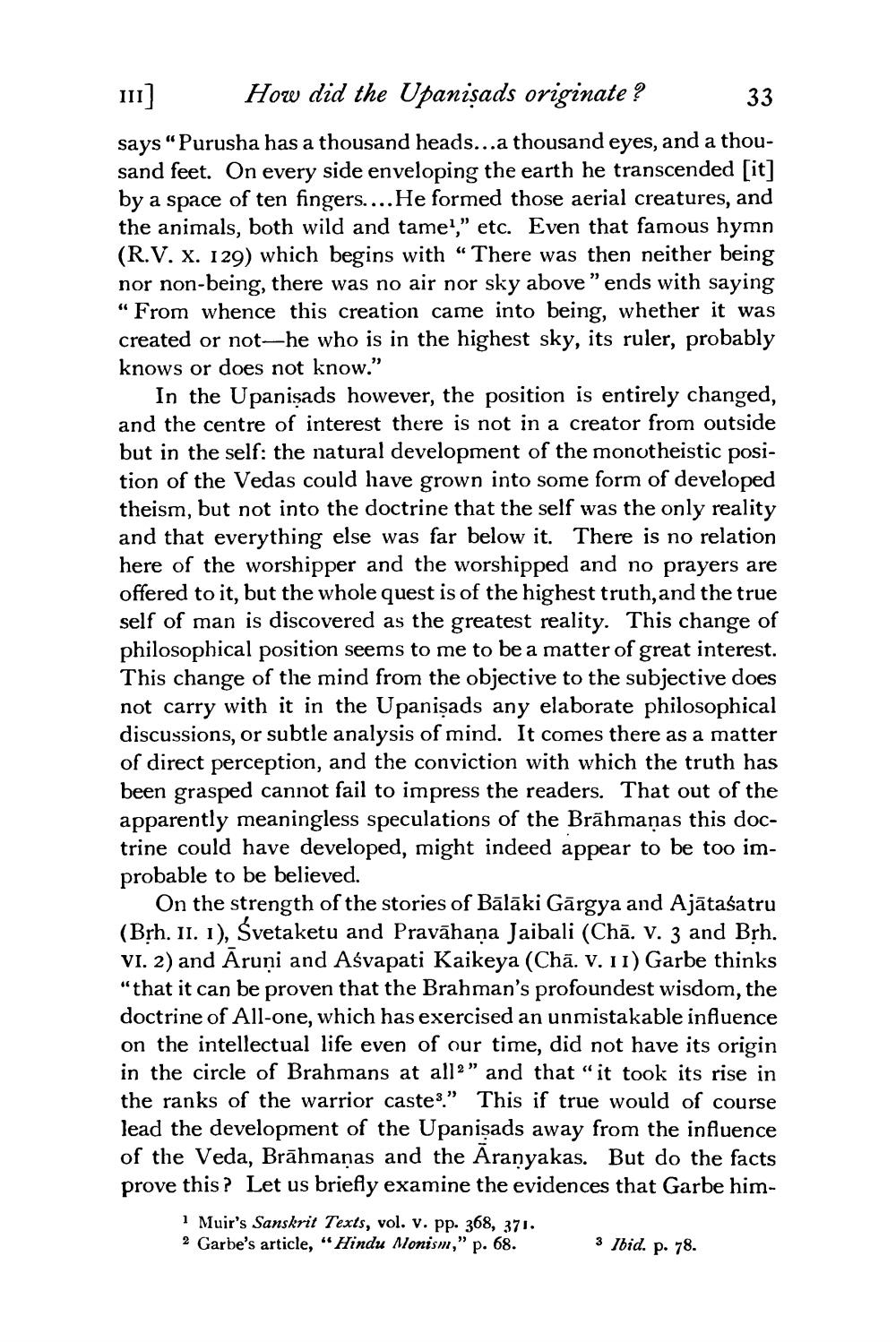________________
How did the Upanisads originate?
33
says
"Purusha has a thousand heads...a thousand eyes, and a thousand feet. On every side enveloping the earth he transcended [it] by a space of ten fingers....He formed those aerial creatures, and the animals, both wild and tame1," etc. Even that famous hymn (R.V. X. 129) which begins with "There was then neither being nor non-being, there was no air nor sky above " ends with saying "From whence this creation came into being, whether it was created or not he who is in the highest sky, its ruler, probably knows or does not know."
III]
Ξ
In the Upanisads however, the position is entirely changed, and the centre of interest there is not in a creator from outside but in the self: the natural development of the monotheistic position of the Vedas could have grown into some form of developed theism, but not into the doctrine that the self was the only reality and that everything else was far below it. There is no relation here of the worshipper and the worshipped and no prayers are offered to it, but the whole quest is of the highest truth, and the true self of man is discovered as the greatest reality. This change of philosophical position seems to me to be a matter of great interest. This change of the mind from the objective to the subjective does not carry with it in the Upanisads any elaborate philosophical discussions, or subtle analysis of mind. It comes there as a matter of direct perception, and the conviction with which the truth has been grasped cannot fail to impress the readers. That out of the apparently meaningless speculations of the Brahmaṇas this doctrine could have developed, might indeed appear to be too improbable to be believed.
On the strength of the stories of Bālāki Gārgya and Ajātaśatru (Brh. II. 1), Śvetaketu and Pravāhaṇa Jaibali (Chā. V. 3 and Bṛh. VI. 2) and Āruņi and Aśvapati Kaikeya (Chã. V. 11) Garbe thinks "that it can be proven that the Brahman's profoundest wisdom, the doctrine of All-one, which has exercised an unmistakable influence on the intellectual life even of our time, did not have its origin in the circle of Brahmans at all2" and that "it took its rise in the ranks of the warrior castes." This if true would of course lead the development of the Upanisads away from the influence of the Veda, Brāhmaṇas and the Āranyakas. But do the facts prove this? Let us briefly examine the evidences that Garbe him
1 Muir's Sanskrit Texts, vol. v. pp. 368, 371. 2 Garbe's article, "Hindu Monism," p. 68.
3 Ibid. p. 78.




